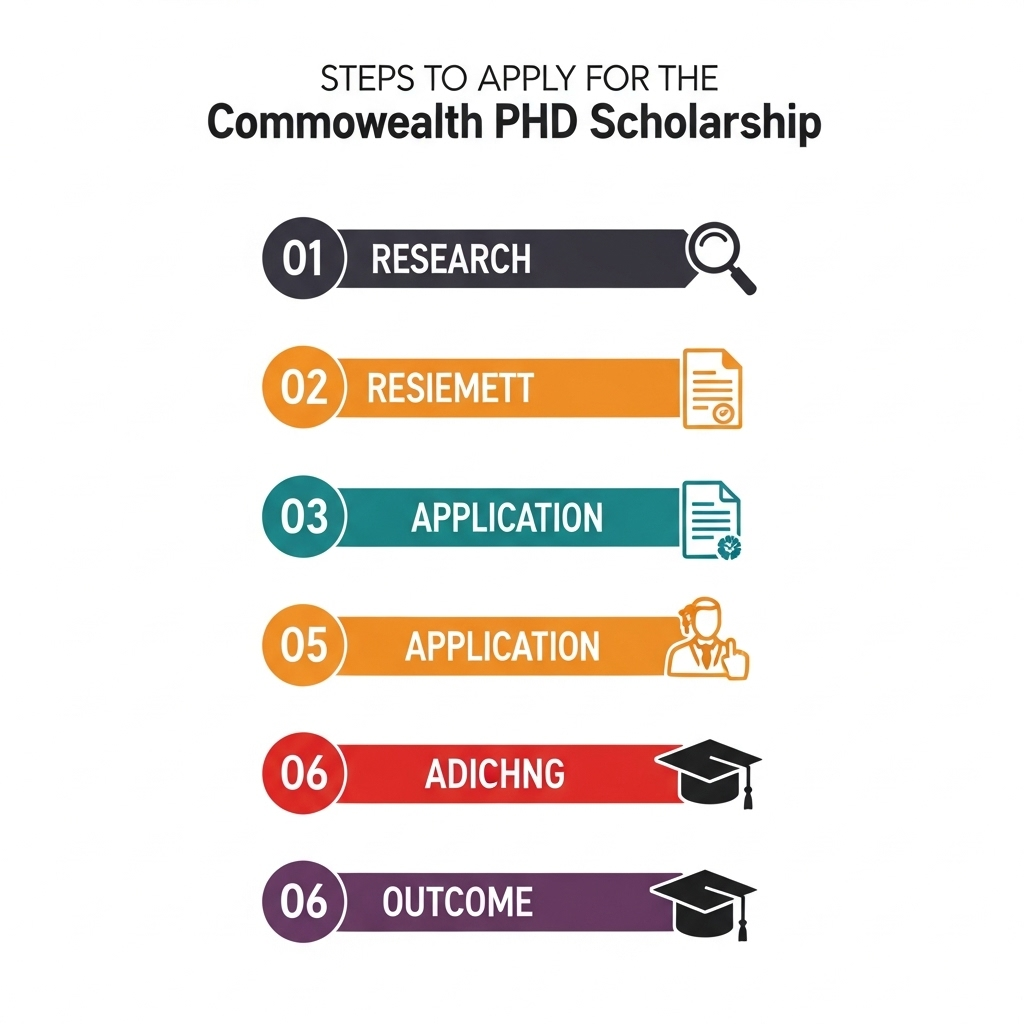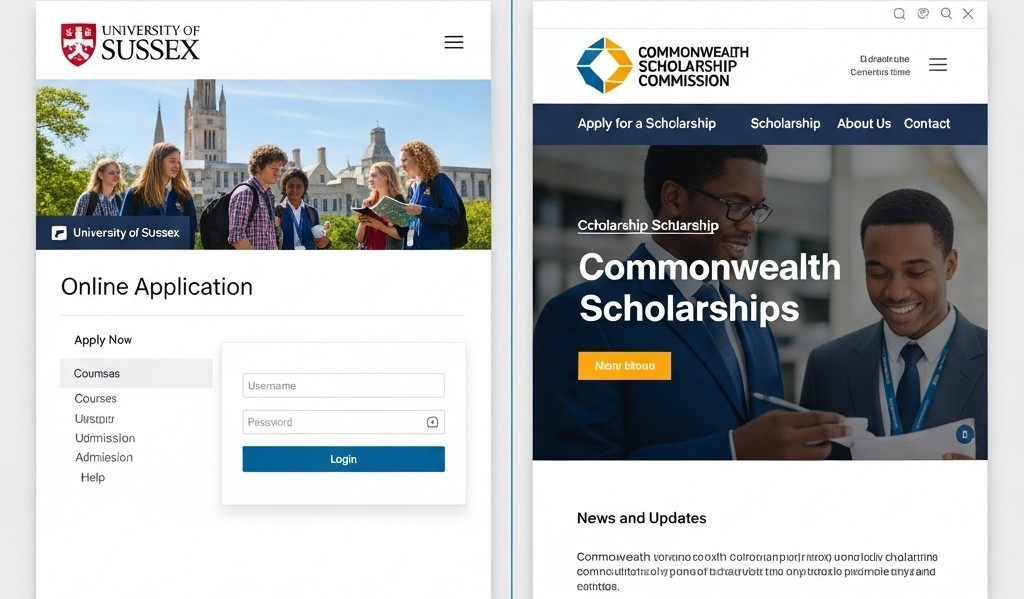Dreaming of a PhD is one thing; making it happen is another, especially when finances feel like an impossible hurdle. But what if there was a way to pursue world-class doctoral research without the burden of tuition fees and living costs? This is where the University of Sussex PhD Commonwealth Scholarships 2026 come in. As someone who has spent years guiding students through this complex process, I can tell you that these scholarships are a genuine game-changer, designed to empower future leaders from across the Commonwealth. This article will be your comprehensive guide, breaking down everything you need to know, from eligibility and the application process to crafting a standout research proposal that gets noticed. Let’s turn your academic ambition into a tangible plan.

Securing a University of Sussex PhD Commonwealth Scholarship is a transformative opportunity. It’s a chance to dedicate yourself to research that matters and to join a global community of change-makers. The process is rigorous, but every step—from refining your research idea to articulating its potential impact—is a valuable exercise that prepares you for your doctoral journey.
What Are the Commonwealth PhD Scholarships?
The Commonwealth Scholarship Commission (CSC) in the UK offers these prestigious awards to support students from low and middle-income Commonwealth countries who want to pursue a PhD. It’s more than just a scholarship; it’s a commitment to global development. By funding doctoral study, the CSC aims to create a pipeline of talent with the skills and knowledge to drive positive change in their home countries. The University of Sussex is a key partner in this initiative, offering a wide range of PhD programs that align with the CSC’s developmental themes, such as science and technology, health systems, and global prosperity. University of Sussex PhD Funding.
A successful application isn’t just about academic excellence; it’s about demonstrating your potential to create a lasting impact. Your application needs to clearly show how your research will address a pressing issue in your home country and how you plan to use your expertise to contribute to its development long after you graduate.
Eligibility: Are You the Right Candidate?
Before you even start writing, the first and most crucial step is confirming your eligibility. While the specific criteria can vary slightly from year to year, here are the core requirements you need to meet to be considered for a Commonwealth Scholarship:
- Nationality and Residency: You must be a citizen or have been granted refugee status by an eligible Commonwealth country. Furthermore, you must be a permanent resident of that country. It’s essential to check the official list of eligible countries, as it can be very specific, particularly for PhD scholarships which often target least developed countries and fragile states (University of Sussex).
- Academic Qualifications: You must hold a first degree of at least an upper second-class (2:1) honors standard. For a PhD, you’ll also need a relevant postgraduate qualification, typically a Master’s degree.
- Financial Need: A fundamental principle of the Commonwealth Scholarships is that they are for candidates who could not otherwise afford to study in the UK. You’ll need to confirm that you or your family are not in a position to fund your studies.
- Study Plan: You cannot already be registered for a PhD or MPhil in the UK before September/October 2026, when the new academic year begins.
Navigating the Application Process for 2026
The application process for the University of Sussex PhD Commonwealth Scholarships 2026 is a dual-track system. You need to apply to both the University of Sussex and the Commonwealth Scholarship Commission. Missing a step on either side could jeopardize your entire application.
Step 1: Apply to the University of Sussex
First, you must secure an offer of admission from the University of Sussex. This is a critical step because the CSC will not consider you for the scholarship without a confirmed place at a UK university.
- Find a Supervisor: This is arguably the most important part of your university application. Your PhD is a collaborative journey with your supervisor. You need to identify a potential supervisor at Sussex whose research interests align with yours. Reach out to them with a concise email introducing yourself, your academic background, and a brief summary of your proposed research. This is your chance to make a strong first impression. In my experience, a supervisor’s support is a powerful asset.
- Submit Your Application: Once you’ve identified a supervisor and, ideally, secured their support, submit your formal application through the University of Sussex’s online portal. You will need to include your academic transcripts, a detailed CV, and a compelling research proposal.
Step 2: Apply to the Commonwealth Scholarship Commission
The CSC has its own online application system. You must submit your application here in parallel with your university application.
- Complete the CSC Application: The CSC’s portal will require you to provide personal details, educational history, employment history, and a detailed plan of study.You’ll also need to submit your Development Impact Statement, which is a cornerstone of the application.
- Engage with a Nominating Agency: The CSC does not accept direct applications from most countries.14 You must be nominated by a national nominating agency in your home country. This could be your Ministry of Education or a recognized scholarship body. These agencies often have their own specific application procedures and deadlines, which may be earlier than the CSC’s.It is crucial to identify your nominating agency and understand their requirements well in advance.

Crafting a Powerful Research Proposal and Development Impact Statement
This is your moment to shine. A generic research proposal simply won’t cut it. You need to demonstrate not only academic brilliance but also a clear vision for how your work will create real-world change.
The Research Proposal
Your research proposal is your roadmap. It proves that your project is not only original but also feasible.
- Title and Introduction: Give your project a clear, descriptive title. The introduction should set the stage, outlining your central research question and why it’s a significant area of study.
- Literature Review: Show that you’re well-versed in the existing academic conversation. Identify the key literature in your field and, most importantly, pinpoint the research gap your project aims to fill. This is where you demonstrate the originality of your work.
- Methodology: This section is all about the “how.” How will you answer your research question? Will you use qualitative interviews, quantitative surveys, or a specific theoretical framework? Be specific and realistic about your approach.
- Timeline and Bibliography: Provide a provisional timeline for your research and include a comprehensive bibliography of your sources.
The Development Impact Statement
This document is unique to the Commonwealth Scholarship application and is weighted heavily in the selection process. It’s your opportunity to connect your academic project to a larger purpose.
- Identify a Problem: Clearly state a development issue in your home country. This could be anything from public health challenges to sustainable energy access.
- Show the Connection: Explain precisely how your proposed research will address this issue. Be specific. Instead of saying, “My research will help the economy,” say, “My research on X will provide a framework for Y, which will directly impact the livelihoods of Z.”
- Long-Term Plan: Describe what you will do with your newfound knowledge and skills after you complete your PhD. How will you apply them to benefit your community, your country, or your chosen sector? This is a chance to articulate your long-term career goals and commitment to social good.
Insider Tips to Boost Your Chances
The journey to securing a scholarship can feel daunting, but a few strategic moves can make a huge difference.
- Start Early: The application period is relatively short, and preparing all the necessary documents—especially a strong research proposal and getting in touch with supervisors—takes time. Begin your research and outreach at least six months before the application window opens.
- Build Relationships: Don’t just send a cold email to a potential supervisor. Read their papers, mention a specific area of their work you find inspiring, and show that you’ve done your homework. A personal, well-thought-out email is far more effective than a generic one.
- Proofread Meticulously: A single typo can undermine your credibility. Have multiple people—a trusted professor, a friend with an eye for detail, or a professional editor—read your application materials.

Navigating Dortmund University Germany Scholarships for the 2026 Spring Batch
FAQ
Q1: What is the estimated deadline for the 2026 scholarship?
A: While the official date is not yet confirmed, applications for the Commonwealth Scholarship are typically expected to open in September and close in mid-October of the preceding year. Keep a close eye on the official websites of both the University of Sussex and the Commonwealth Scholarship Commission for the most up-to-date information.
Q2: Do I need to have a Master’s degree to apply?
A: Yes, for a PhD scholarship, you are generally required to hold a relevant postgraduate qualification, usually a Master’s degree, in addition to an undergraduate degree of at least a 2:1 honors standard.
Q3: Is the scholarship open to all Commonwealth countries?
A: The Commonwealth PhD Scholarships are specifically for citizens and permanent residents of low and middle-income Commonwealth countries. You must check the official CSC website for the latest list of eligible countries, as it can be very specific and subject to change.
Q4: What does the scholarship cover?
A: The scholarship is fully funded, typically covering tuition fees, a monthly living stipend, return airfare to the UK, and other allowances for warm clothing, study travel, and a thesis grant.










